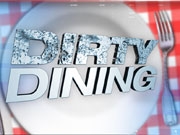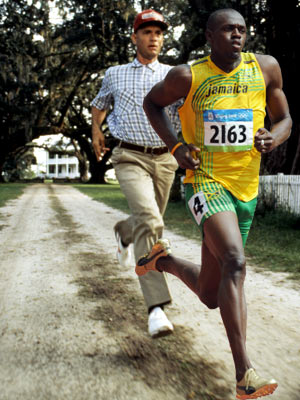When you go out to eat, what stands between you and food poisoning?
 Tonight, in a special Dirty Dining report, Contact 13 uncovers a loophole in the food safety system.
Tonight, in a special Dirty Dining report, Contact 13 uncovers a loophole in the food safety system.
As Chief Investigator Darcy Spears learned, some of the people preparing your food may not be prepared to keep you safe.
“It was a wake-up call, especially for the employees,” said Mark Green when his restaurant, Kahunaville at TI, was on Dirty Dining in October.
“He was hired very new and so… he didn’t know,” said Vanessa Nguyen of Pho Bosa in another October Dirty Dining report.
And in September, Min Yoon of Kaizen Fusion Roll and Sushi said, “It’s incompetence. I understand that.”
Week after week, that’s what we hear from restaurant owners and managers whose eateries are downgraded or closed for failing to protect public health.
But whether they’re featured on Dirty Dining or not, our investigation found local restaurants may be vulnerable to a loophole in the system.
Darcy Spears: Is this a system that’s ripe for fraud? County Commissioner Chris Giunchigliani/Board of Health: It is a system that probably could be used fraudulently.
Contact 13 discovered it has.
The Health District certifies first-time restaurant workers in the form of a food handler safety training card.
“So that when they get to the workplace, they are ready and set to work,” explained SNHD Environmental Health Director Jackie Reszetar.
But at Wo Hing during the restaurant’s first inspection this month, they were nearly shut down due to unsafe food handling.
Darcy Spears: Did they have training from the Health District? They have their food card, right?
Sam Lee/Wo Hing: Yeah, yeah.
Jonh Dang of Vietnamese bistro Nem Nuong says the training is flawed.
Jonh Dang: I fired a lot of people.
 Darcy Spears: You had to fire like 20 people for defrauding the food card program?
Darcy Spears: You had to fire like 20 people for defrauding the food card program?
Jonh: Yeah, they supposed to know what they doing. You know?
The problem with the system is that there are no checks and balances.
There’s nothing to prevent one person from stepping in and answering the test questions for another.
To get the card, you just need a test completion certificate, identification and $40.
Darcy Spears: What does that suggest to you?
Jackie Reszetar: That suggests that we have to have a better check system.
County Commissioner Chris Giunchigliani sits on the Board of Health, which oversees the Health District.
Darcy Spears: What safeguards are there in place right now to make sure that the person who goes on the computer is the person who goes to pick up the card and takes the picture?
Chris Giunchigliani: To my knowledge, I don’t know that they have that safeguard because they can do it from home, they can do it from a library.
The Health District issues more than 100-thousand food handler cards each year.
So how many instances of cheating have they documented?
“We don’t want the numbers out there,” Chua said. “We don’t want anything out there because one person, one instance is too much.”




 possible source for illness complaints that have been posted on Facebook.
possible source for illness complaints that have been posted on Facebook. Inspectors found cooked crawfish being stored at the wrong temperature, live crawfish in a sink next to dirty dishes, dirty floors – including dead crawfish on the floor of a walk-in freezer – and dried food debris caked to shelves and "clean" kitchen knives.
Inspectors found cooked crawfish being stored at the wrong temperature, live crawfish in a sink next to dirty dishes, dirty floors – including dead crawfish on the floor of a walk-in freezer – and dried food debris caked to shelves and "clean" kitchen knives. storing food. Beef, chicken, and pork sitting out at an unsafe temperature created what inspectors called a "potentially hazardous" situation.
storing food. Beef, chicken, and pork sitting out at an unsafe temperature created what inspectors called a "potentially hazardous" situation. everything right, I’d market my excellent food safety any way I could – but only if I was sure I was doing everything right.
everything right, I’d market my excellent food safety any way I could – but only if I was sure I was doing everything right.
 Health District, primarily related to a salad bar that wasn’t keeping foods at the proper temperature.
Health District, primarily related to a salad bar that wasn’t keeping foods at the proper temperature.